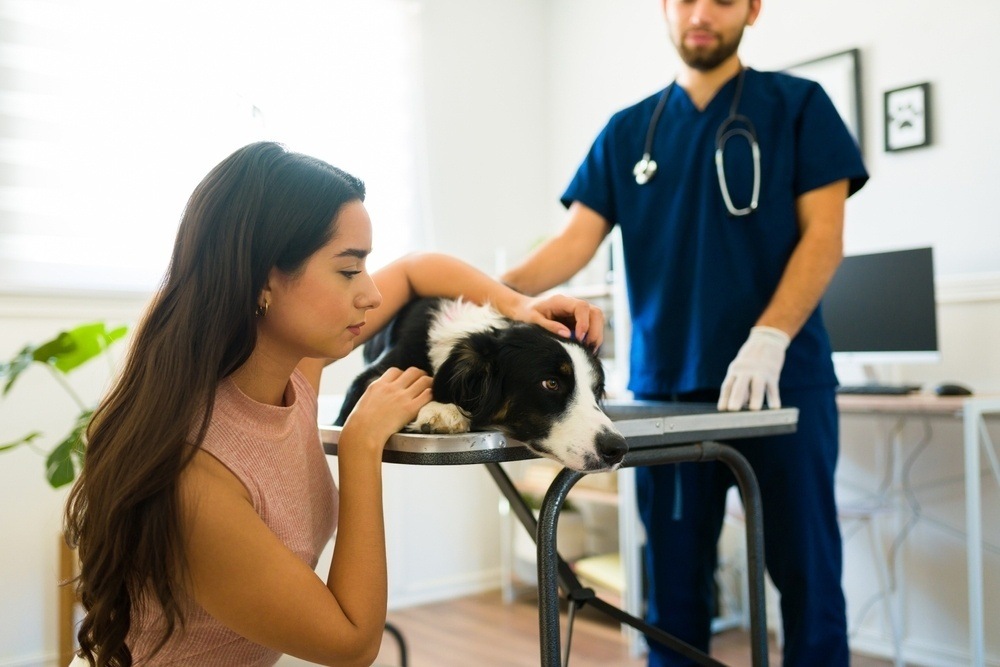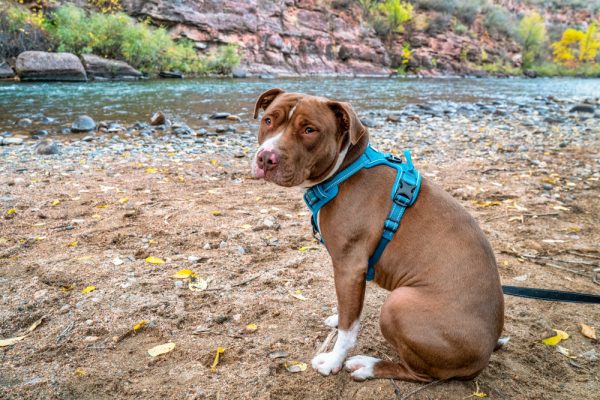In this article
View 5 More +You’re probably familiar with carbon monoxide poisoning in people, but did you know it’s something you need to be concerned about for your pets? Our dogs are just as susceptible to the effects of carbon monoxide as we are. It can cause serious consequences, including death.

What Is Carbon Monoxide Poisoning in Dogs?
Carbon monoxide is a colorless and odorless gas. This gas is highly poisonous and is considered a leading cause of unintentional poisoning, leading to death. Unfortunately, carbon monoxide has an affinity for the same hemoglobin molecules in red blood cells that typically carry oxygen through your dog’s body. The hemoglobin has a stronger affinity for carbon monoxide than oxygen.
When your dog is exposed to carbon monoxide, these gaseous molecules bind to the hemoglobin rather than oxygen. This bonding forms carboxyhemoglobin. Your dog’s brain, heart, and other organs can suffer hypoxia, not getting enough oxygen, so signs like seizures or a coma can result.

What Are the Signs of Carbon Monoxide Poisoning in Dogs?
Bright red gums are a significant sign of carbon monoxide poisoning in dogs. You can lift up your dog’s lip and see this sign unless it has all-over pigmented gingiva. Other signs of exposure to carbon monoxide include:
- Weakness
- Lethargy
- Obtunded mentation (dull or depressed)
- Vision loss
- Deafness
- Difficulty breathing (dyspnea)
- Elevated heart rate (tachycardia)
- Increased respiratory rate (tachypnea)
- Coughing
- Seizures
- Behavior changes such as irritability and aggression
- Loss of consciousness
- Coma
- Death
Dogs with pre-existing health conditions are more likely to be affected by carbon monoxide, especially if they have a cardiac or respiratory condition that can be exacerbated by exposure.
If your pet is showing these signs, we suggest you speak to a vet immediately.
What Are the Causes of Carbon Monoxide Poisoning in Dogs?
Any of the ways that you could be exposed to carbon monoxide applies to your dog as well. Some examples include:
- Sitting in an enclosed garage with a car running
- Furnaces running without adequate ventilation
- Gas heaters (or kerosene heaters)
- Fires
Carbon monoxide gas readily diffuses through the room, so small and large dogs can be equally affected. If you have other animals, you should note that birds are even more sensitive to the effects of carbon monoxide poisoning.
How Do I Care for a Dog With Carbon Monoxide Poisoning?
If you know or suspect your dog has been exposed to carbon monoxide, immediately get them outside and into fresh air. They need to be taken to a veterinary hospital urgently. If they are not breathing, you may need to perform CPR, but make sure you are in a safe and well-ventilated location to do so.
Your veterinarian may start therapy at your veterinarian’s office based on a history of exposure to carbon monoxide. The veterinarian can perform blood tests if there’s a question about exposure. These tests can check for levels of carboxyhemoglobin and blood pH. Carbon monoxide poisoning tends to cause metabolic acidosis.
The mainstay of therapy is oxygen. Your veterinarian will place your pet on oxygen or in an oxygen-rich environment, such as an oxygen cage. One of the best treatment options is a hyperbaric oxygen chamber, but most veterinary hospitals do not have access to this equipment. Your veterinarian will likely check an electrocardiogram to evaluate your dog’s heart activity. In cases of seizures or coma, your veterinarian may recommend a CT or MRI to assess your dog’s brain for cerebral edema.
Depending on your dog’s other signs and testing, your veterinarian may start your dog on intravenous fluid therapy. This treatment can improve blood and tissue perfusion, and electrolyte or acid-base imbalances can also be corrected.
If your dog has tremors or seizures, your veterinarian will utilize anticonvulsant medications, such as diazepam.
After the initial recovery, your dog should be monitored closely for several days as neurologic signs could still develop. Your dog’s activity should also be restricted for several weeks post-exposure to carbon monoxide. Take short leash walks rather than long romps in the yard to keep your dog from becoming overexerted.

Preventing Carbon Monoxide Poisoning in Dogs
Preventing your dog from becoming exposed to carbon monoxide Is very important. Don’t leave your dog in the garage with a car running, and make sure any generators, heaters, or furnaces are ventilated effectively. In addition to smoke detectors, you should use carbon monoxide detectors. You can even find combination detectors online or in your local hardware store.

Frequently Asked Questions (FAQ)
What are the long-term effects of carbon monoxide poisoning in dogs?
Sometimes, pets and people are exposed to carbon monoxide over the long term, such as weeks instead of minutes or hours. When this poisoning occurs, your dog might show signs of vomiting or nausea, including heavy drooling or lip smacking. Your dog might also be tired easily or even have uncoordinated movements.
What is the antidote for carbon monoxide poisoning in dogs?
The antidote for carbon monoxide poisoning is oxygen. Your veterinarian must place your dog in a high oxygen concentration to help get oxygen to your dog’s brain, heart, and other cells. In places with access to a hyperbaric oxygen chamber, your veterinarian may suggest this tool as part of your dog’s therapy.

Conclusion
Carbon monoxide poisoning is lethal and requires immediate intervention to save your dog’s life. If you have any questions about exposure, have your dog evaluated by a veterinarian immediately. Do your best to prevent exposure to keep you and your furry family safe.
Featured Image Credit: Elena Loza, Shutterstock




















